- Details
- Written by: Kamran Mofid
- Hits: 2048
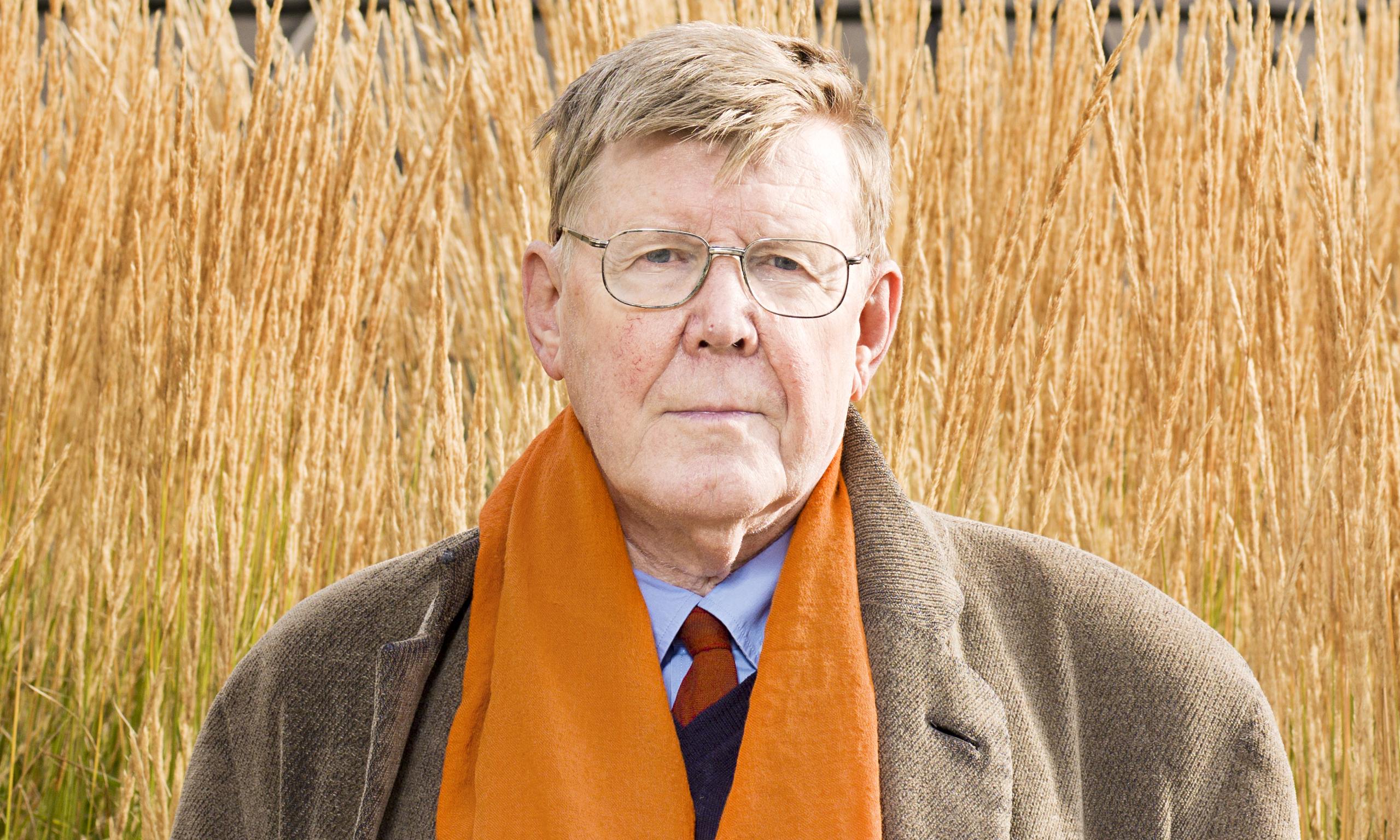
Allen Bennett
Photo:theguardian.com
Alan Bennett, the playwright and passionate champion of the underdog, has turned his fire on the creeping privatisation of Britain’s public institutions.
The 80-year-old writer used a “sermon” at Cambridge University to lambast what he said was the pursuit of profit in public services from prisons to the National Health Service, and suggested the drivers of privatisation were comparable to the “devout louts” of 17th Century puritanism.
In a broad-ranging sermon before the university, Bennett criticised the lack of fairness in British society encapsulated by the private school system, recalling his own visit to Cambridge in the 1950s with “the odds stacked against me” as he sought a scholarship against public school-educated rivals.
Private Education is unfair and un-Christian
‘But if, unlike the Daily Mail, one believes that the nation is still generous, magnanimous and above all fair, it is hard not to think that we all know that to educate not according to ability but according to the social situation of the parents is both wrong and a waste.
Private education is not fair. Those who provide it know it. Those who pay for it know it. Those who have to sacrifice in order to purchase it know it. And those who receive it know it, or should. And if their education ends without it dawning on them then that education has been wasted. I would also suggest – hesitantly, as I am not adept enough to follow the ethical arguments involved – that if it is not fair, then maybe it's not Christian either.
How much our ideas of fairness owe to Christianity, I am not sure. Souls, after all, are equal in the sight of God and thus deserving of what these days is called a level playing field.
This is certainly not the case in education and never has been, but that doesn't mean we shouldn't go on trying. Isn't it time we made a proper start? Unlike today's ideologues, whom I would call single-minded if mind came into it at all, I have no fear of the state. I was educated at the expense of the state, both at school and university. My father's life was saved by the state as, on one occasion, was my own. This would be the nanny state, a sneering appellation that gets short shrift with me. Without the state, I would not be standing here today.
I have no time for the ideology masquerading as pragmatism that would strip the state of its benevolent functions and make them occasions for profit. And why roll back the state only to be rolled over by the corporate entities that have been allowed, nay encouraged, to take its place? I am uneasy when prisons are run for profit or health services either. The rewards of probation and the alleviation of suffering are human profits and nothing to do with balance sheets. And these days no institution is immune. In my last play, the Church of England is planning to sell off Winchester Cathedral.
"Why not?" says a character. "The school is private, why shouldn't the cathedral be also?" And it's a joke, but it's no longer far-fetched.
With ideology masquerading as pragmatism, profit is now the sole yardstick against which all our institutions must be measured, a policy that comes not from experience but from assumptions – false assumptions – about human nature, with greed and self-interest taken to be its only reliable attributes.
In pursuit of profit, the state and all that goes with it is sold from under us who are its rightful owners and with a frenzy and dedication that call up memories of an earlier iconoclasm.
Which brings me nearly to the end.
One pastime I had as a boy which, thanks to my partner, I resumed in middle age, was looking at old churches, "ruin-bibbing" Larkin dismissively called it, though we perhaps have a little more expertise than Larkin disingenuously claimed he had. I do know what rood lofts were, for instance, though, like Larkin, I'm not always able to date a roof.
The charm of most medieval churches consists in what history has left and one learns to delight in little, the dregs of history: a few 15th-century bench ends, an alabaster tomb chest or, where glass is concerned, just the leavings of bigotry, with ideology weakening when it came to out-of-reach tracery – the hammer too heavy, the ladder too short – so that only fragments survive, a cluster of crockets and towers maybe, the glimpse of a golden city with a devil leering down.
In my bleaker moments, these shards of history seem to me emblematic obviously of what has happened to England in the past, but also a reminder and a warning of what in other respects is continuing to happen in the present, with the fabric of the state and the welfare state in particular stealthily dismantled as once the fabric of churches more rudely was, sold off, farmed out; another Dissolution, with profit taking precedence over any other consideration, and the perpetrators today as locked into their ideology and convinced of their own rightness as any of the devout louts who four and five hundred years ago stove in the windows and scratched out the faces of the saints as a passport to Heaven.
I end with the last few lines of my first play, Forty Years On. It's set in a school with the headmaster on the verge of retirement and is what nowadays is called a play for England. It ends with the boys and staff singing the doxology "All Creatures That on Earth Do Dwell", with before it, this advertisement for England:
To let. A valuable site at the crossroads of the world. At present on offer to corporate clients. Outlying portions of the estate already disposed of to sitting tenants. Of some historical and period interest. Some alterations and improvements necessary.’
On the issues raised above see more:
Alan Bennett launches fierce attack on private education
Why Alan Bennett's plea for the reform of private education is welcome
Abolish private schools, Alan Bennett argues
“The charge sheet is this. The government is led by a clique of toffs who have neither respect for their colleagues, nor empathy with the average voter. Their born-to-rule mentality means they have a greatly over-inflated view of their own capabilities, which deafens their ears to the advice and warnings of others who might actually know better. They are nothing like as good at governing as they think they are. And this, the charge sheet concludes, is now inflicting serious harm on both the country and the Conservatives' future electoral prospects. This view is now becoming more and more prevalent in the media, too, even among the press that the Conservatives would normally count as their friends.”-Andrew Rawnsley, The Observer, 29 April 2012

Men of the people? David Cameron and Boris Johnson in the livery of the Oxford University Bullingdon Club
- Details
- Written by: Kamran Mofid
- Hits: 2885
At the GCGI we believe every child, young person, students and their teachers should have regular opportunities and ease of access to connect with nature, so they can learn to value it, appreciate it, enjoy it, prioritise it and take action to save it.
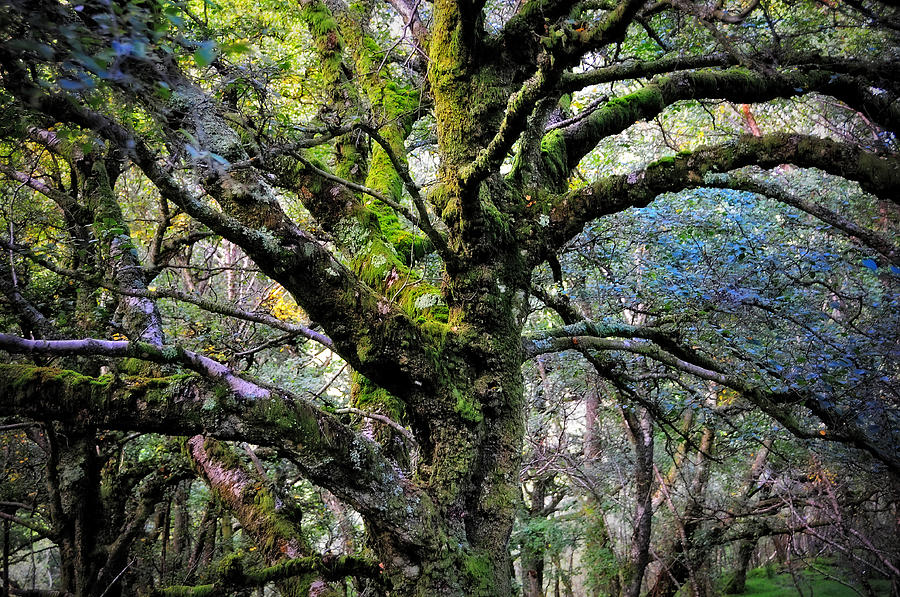
The Tree of Wisdom, Old whimsical tree in the Wicklow forest, Ireland.
Photograph by Jenny Rainbow: fineartamerica.com
I offer this in honour of our forthcoming coming conference in Lucca, Tuscany, 28 August-1 September 2018
“Be like the sun for grace and mercy.
Be like the night to cover others’ faults.
Be like running water for generosity.
Be like death for rage and anger.
Be like the Earth for modesty.
Appear as you are.
Be as you appear.”-Rumi
‘When we fiddle with nature, there can be unforeseen consequences. When we fiddle with nature in big ways, entire civilizations collapse.’
Man and Nature: George Perkins Marsh
Author: David Lowenthal
A lesson for our times
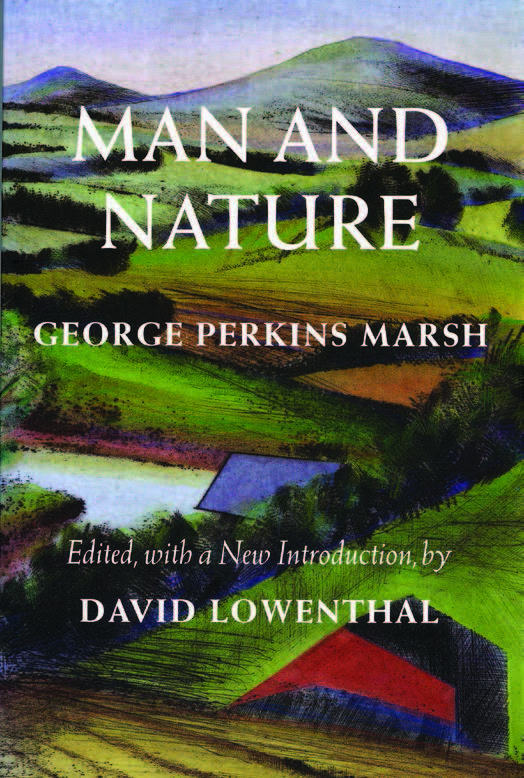
“George Perkins Marsh's Man and Nature was the first book to attack the American myth of the superabundance and the inexhaustibility of the earth. It was, as Lewis Mumford said, "the fountainhead of the conservation movement," and few books since have had such an influence on the way men view and use land. "It is worth reading after a hundred years," Mr. Lowenthal points out, "not only because it taught important lessons in its day, but also because it still teaches them so well...Historical insight and contemporary passion make Man and Nature an enduring classic."
‘This was the essence of a densely written book, Man and Nature; or, Physical Geography as Modified by Human Action, published in 1864 in New York and London. It wasn’t much anticipated, and the author, George Perkins Marsh, a former congressman from Vermont, was little known. Yet it went on to be an international bestseller, was translated into multiple languages, was repeatedly updated in expanded editions, and is now generally recognized to be one of the most important books ever published. Its arguments were a major factor in the creation of the Forest Preserve…
‘When the forest is gone, the great reservoir of moisture stored up in its vegetable mould is evaporated, and returns only in deluges of rain to wash away the parched dust into which that mould has been converted,” Marsh wrote. Springs dry up, soils erode, ecological communities deteriorate, and agriculture fails; everything dependent on the stable regime protected by forests and a reliable watershed—in other words, civilization itself—is at risk. The decline of the Roman Empire, he concluded, was at least partially attributable to “man’s ignorant disregard of the laws of nature…’Continue to read
Nature, Education, Teaching and Learning
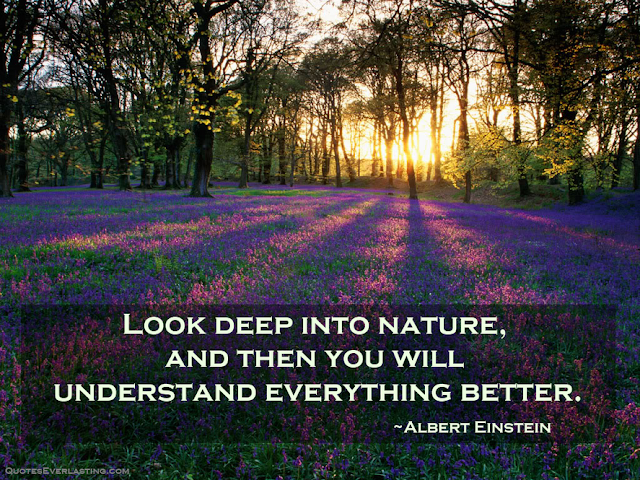
Photo:bing.com
The Wisdom of Mother Nature: “Speaks not a word in any human language, and yet everything in Nature inspires humanity to seek and learn, engendering awe, mystery, and an enthusiasm for uncovering the truth behind her workings, her creations, her cycles and her balance. As such, she is the primal teacher archetype of inspirational teaching and the root of all scientific enquiry. Hence, ‘science’ has been defined as “mankind’s attempt to understand Nature”. The great scientist Albert Einstein expressed it more dramatically stating, “We still do not know one thousandth of one percent of what Nature has revealed to us.”
More than parent and student communities, the teaching fraternity needs to understand that the essential purpose of education is not to enable students to earn a living, but to learn how to live life. As the primal teacher, Mother Nature teaches both the secret of life, which is to respect all life, and also how to live one’s own life in harmony and balance with all creation, exemplified by the manner in which various species of the natural world live in peaceful co-existence.
Encouraging observation of the daily miracles of Nature has profound effects on students. One effect is a heightened appreciation of life and its wonders, with corresponding understanding of how each plant and animal contributes its own unique qualities, abilities and skills to the whole, complementing one another to enhance Nature’s overall beauty, practicality and efficiency. When this pedagogy is utilised and concept applied to society, it helps foster respect for others and their talents, and instills the desire in students to work together for the betterment of the community as a whole.
Nature’s greatest teaching technique for vital survival skills is ‘trial and error’. While the parents of a young animal may teach and demonstrate, the mastering of any skill can only come from the repeated attempts of the ‘youngster’ himself, and each failure becomes the foundation of learning for the next attempt. When this pedagogy is utilised in classrooms, teachers become ‘guides,’ encouraging students to seek their own answers, their own solutions to problems, and learn by doing. This also infuses creativity and enthusiastic participation into the learning process.
Nature is also an exemplary interactive teacher. She teaches us most vividly the concepts of action/reaction as plants and animals mirror our own state of mind — positive and negative. Plants and animals ‘respond’ in a positive manner to tender, loving care. Hence, from hardened criminals to the criminally insane, study after study has shown the benefits of people working with Nature, especially animals, not only for the individual, but for society as a whole.
These benefits become visible in the classroom as well when students work with plants and/or animals. In addition, students gain a sense of responsibility and self-satisfaction as life forms they nurture, grow and flourish. Extra-curricular group activities that include service projects in the community centred around cleaning and beautification of parks, waterways, and forest areas, reinforce the values of volunteerism and cooperation.
Today, humanity stands at the crossroads, both environmentally and in the field of education. We are in the grip of an environmental crisis that threatens the very survival of the human race — a crisis that has been brought about by our own destructive actions and activities. Global warming and climate change, species extinction and pollution are destroying the pyramid of life whose very foundation is Nature and her various ecosystems.
As the capstone of this pyramid, humankind is facing imminent destruction as its base of fertile soil, clean water and air provided by Nature is being steadily eroded, with species of flora and fauna disappearing at unprecedented rates. Already over 60 percent of the planet’s ecosystems are near the point of no return, according to the United Nations.
As educators, we have a duty to society not only to make our students aware of this crisis, but also to encourage them to do something about it, since it is they and their children who will inherit our planet-under-siege. By bringing Nature back into the classroom, we can instill in our students an understanding and respect for all aspects of creation. And by bringing students back into the ‘classroom of Mother Nature’, Nature herself will inspire them to act to protect her and their own future. The ripple effects of our actions will touch not only their parents and immediate community, but the nation and world as a whole.
The future is of today’s children. But it’s our duty to find and light the path toward regeneration and rejuvenation of Mother Nature, of planet Earth, to bring a greater understanding of the oneness of all creation, of which we are part. Once again, as Einstein put it, “Look deep into Nature, and then you will understand everything better.” (Pamela Gale Malhotra is the trustee and co-founder of the SAI Sanctuary Trust, South Kodagu/Coorg district, Karnataka, South India (www.saisanctuary.com)
More on The Wisdom of Nature
'We are always being told that nature is good for us – and that we should spend more time in its company for the sake of our health. What is less well flagged up is that nature is as important to us as a source of nourishment for our souls. Nature is a kind of book, and when we open our eyes to it, find its pages filled with distinctive lessons about wisdom and serenity. In a set of alpine flowers growing on a hillside, we can read a defence of the value and beauty of the everyday; an evening sky can lend legitimacy and dignity to our melancholy states; there are invitations to calm in the unhurried motions of a Friesian cow; the sight of the distant stars can settle our anxieties by evoking our insignificance in the wider scheme. This set of essays highlights some of the most psychologically nourishing landscapes, flora and fauna of the planet. It functions as a reminder of all the consolation and redemption available to us in the natural world.'...Continue to read
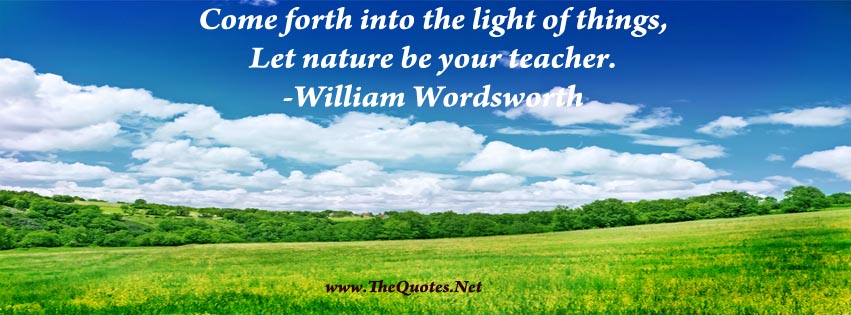
And now continue to read a bit more on the wisdom of nature and more
- Details
- Written by: Kamran Mofid
- Hits: 1274
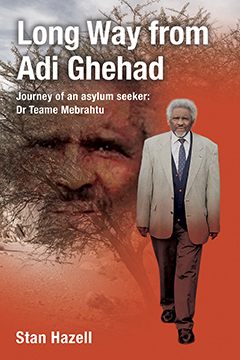
Photo: shepheard-walwyn.co.uk
‘With immigration and asylum seekers high on the agenda of governments throughout Europe, the life story of Dr Teame Mebrahtu is a timely reminder of a positive side of what has become a contentious and potentially divisive issue. It is a truly remarkable and inspiring story.
Dr Mebrahtu, born in the village of Adi Ghehad in the Eritrean Highlands, was a leading teacher trainer in his country but was forced to leave when his life was in danger in the 1970s.
The book first traces his early life in Eritrea, then part of Ethiopia, his efforts to get an education – the first in his family to do so – his involvement in student demonstrations against the government of Emperor Haile Selassie, resulting in imprisonment, and his rise to become Director of the Asmara Teacher Training Institute amidst the political unrest and bloodshed of the Eritrean liberation struggle. He was an eyewitness to the moment Haile Selassie was deposed.
During this time he had been developing his philosophy of teaching, first as a teacher then a teacher trainer, which was to mark the rest of his career. He firmly believes the welfare of students is an essential precursor to academic success.
When his life came under threat, he managed to leave the country to study for a PhD at Bristol. Within a year of arriving he was ordered back to Addis Ababa by the Mengistu regime. Sensing his life was again in danger, he refused and applied for and was granted asylum. Although entitled to state benefits, he declined saying he had not earned them. Instead, he persuaded local schools to let him talk to pupils about Africa and the Africans bringing new understanding of those with a different culture. His popular talks won him a grant from the Rowntree Trust.
While the Eritrean liberation war raged, he raised support for refugees fleeing the fighting and living in camps in Sudan. He visited the camps advising on schooling for the refugee children. Later he went to train teachers in the Zero School set up in caves in liberated parts of Eritrea, braving the Ethiopian MiGs.
After obtaining his PhD, he joined the staff of the Bristol Graduate School of Education where, for 24 years, he became a respected senior academic and adviser to international students – many of whom went on to have leading roles in the education system of their countries. He has become a valued member of his local community. An acknowledged expert on multicultural education and the problems of refugees, he has provided advice and valuable insights from his own experience during the troubled history of Eritrea and whilst establishing a new life in Britain.’
A Highly Recommended Book
“Stories of outstanding people, who overcome great adversity, encounter almost impossible odds in rising from humble beginnings in remote villages to become noteworthy citizens of the world, form part of the most uplifting areas of literature. Such individuals and their life experiences in following a powerful mission to improve human-kind, provide exemplars of how to live a truly good life. This account of the life of Dr Teame Mebrahtu is undoubtedly part of that pantheon of biographies.”- Professor Malcolm Johnson, University of Bristol
“Teame Mebrahtu is a man who received a special vocation and who has held on to it all his life: To be a teacher in the full meaning of the word… It is difficult to understand how it has been possible for one person to take on and to fulfill so many tasks. In his work he has not sought a personal career. In all of it we see a deep concern for people, which in the end is what counts in life. Take the book and read it!”- Prof. Arve Brunvoll, Bergen, Norway
“…This account is memorable. It is a salutary illustration of one man’s reasons for flight, of his desire to contribute to his host country, of his passion for education. At a time when refugees are regularly dehumanised in public discourse, this story shows how people of different cultures can find understanding and common ground.” - Fleur Houston, Reform Magazine
“An honest and genuine narration of Teame’s life long devotion to the art of teaching coupled with a rare personality trait of ready empathy with the underdog.”- Tukue Woldeamlek, Retired Eritrean Educator
“[Dr Mebrahtu’s] views on “living with difference” point the way for diverse communities and cultures to come together in harmony and understanding and are therefore relevant to all of us in the Churches.”- John Singleton, Methodist Recorder
“A valuable resource for those seeking to understand the issues of immigration, the conflicting forces facing asylum seekers, and the challenges for countries where they gain sanctuary. Dr Mebrahtu’s reflections on the issues of immigration both for the immigrants and the host community, based on his own experience and that of the many other refugees he helped, are thought provoking.” - Henleaze & Westbury Voice
Click here to purchase ‘Long Way from Adi Ghehad:Journey of an Asylum Seeker: Dr Teame Mebrahtu’
- Student Suicides at Bristol University: My Open Letter to the Vice-Chancellor, Prof. Hugh Brady
- ‘I Have a Dream’: Yearning for Dr. King’s Interconnected World
- On the 1st Day of the New Year...A Poetic Pilgrimage to Wisdom
- Don’t Despair Walk on: This is the Hope of Christmas
- Congratulations Coventry The City of Culture 2021
